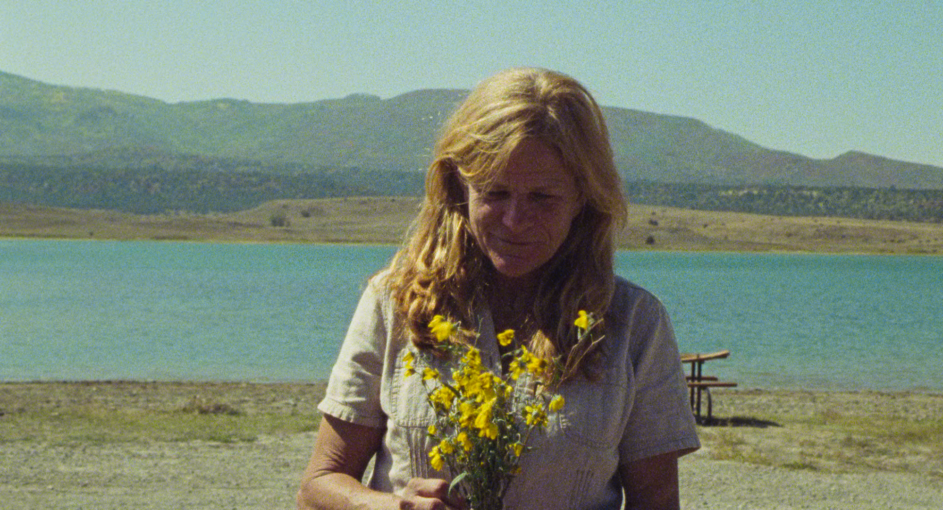Knoxville native Dale Dickey is one of this city’s biggest acting success stories, not because of star billing in Hollywood blockbusters but because she has carved out a varied and acclaimed career in film and television and on stage for nearly four decades.
Now, she is making headlines as the star of “A Love Song,” a film about a lonely woman who is looking to her past to suggest a direction for her future. It opens today at Downtown West.
Dickey, a Bearden High School graduate, says the role was intimidating because “it’s perhaps the closest character to myself that I’ve ever played.”
“I’ve spent my life hiding behind these rough-and-tumble character roles, which I just sort of throw myself into, and I’m in the background,” she says by phone from New York, where she’s working on a TV show. “And I love that. I don’t necessarily like being in the limelight. It’s wonderful, but it’s a different world for me.”
Dickey has made an impression in films ranging from “Sordid Lives” to “The Pledge” to “Winter’s Bone” to “Leave No Trace” and television series from “Christy” to “My Name Is Earl” to “True Blood” to “Justified.” First-time feature director Max Walker-Silverman had noticed her work and wrote the character of Faye in “A Love Song” for her. He wanted to start production in summer 2020, when film production had slowed to a crawl because of Covid-19.
“I loved his script,” says Dickey. “I loved his short movies. I got a great feeling from him. And I was thrilled to get back to work, but I did tell him, I said, ‘Max, I won’t fly on an airplane.’ There were no vaccines yet.”

Wes Studi co-stars with Dale Dickey in “A Love Song.”
The cast and 11-member crew were very careful, driving individually to Telluride, Colorado, Walker-Silverman’s hometown, and quarantining for 10 days until all tested negative before heading to the small town of Norwood, about 90 minutes away, where filming was to take place.
“It was a great first job for Covid because we filmed in the outdoors completely except for the times in (Faye’s) trailer,” Dickey says. “We all got tested every other day. We lived in bubbles. We didn’t go anywhere.”
The crew lived in two farmhouses and Dickey and co-star Wes Studi in a third.
“We were very isolated out in the country. No one got sick; we made it through.”
Dickey hadn’t met Studi prior to being cast in this film.
“I knew of his work of course, mainly ‘The Last of the Mohicans,’ which terrified me, and ‘Dances With Wolves,’” she says. “I was so happy when Max told me he had reached out to Wes, that he actually had Wes in mind as well. I thought that was a great choice because it was not written to be a Native American role. He’s just a guy I went to school with.”
Faye is not a stereotype either. She’s looking for something, but she’s very self-sufficient.
“I loved the character of Faye,” Dickey says. “I loved the simplicity and the stillness and quiet and pure beauty of the script.
“I’ve been longing to have a chance to play a character like that. Was I capable of holding the screen? I was terribly insecure and nervous. I didn’t want to let Max down.
“I laid it on the line with the crew and Max and went, ‘These are my insecurities. This is when I’m going to get weird. This is when I need your help.’ We all just supported each other and worked really well. Max would come and whisper something in my ear to remind me of who Faye was, and they just gave me a lot of confidence. I learned a tremendous amount doing the film.”
For Dickey, playing a character who has spent a lot of time in the outdoors came naturally. She grew up exploring the Smokies with her family and never met a ray of sunshine she didn’t like, and her face has the lines to prove it.
“My favorite thing with the critics, who were so beautiful in embracing this movie – they were trying to tiptoe around the fact that I’m ‘wrinkled as shit,’ as I keep saying. They would say, ‘She’s gloriously grooved.’ Or ‘wondrously weathered.’ And I thought, you know, that’s a pretty lovely way of looking at us as we get older. That’s the map of your life, so there’s nothing wrong with having an aged face. It is what it is.”
The press has also played up the similarities between “A Love Song” and “Nomadland,” but Dickey wasn’t aware of the Frances McDormand film, which was in production at the same time.
“I know there are a lot of comparisons to ‘Nomadland,’ which is a huge, huge compliment – Ms. McDormand is one of my all-time favorite heroines.
“I just think it was the right story for the right time. Faye and Fern are very different people out there for different reasons. But basically (it’s) the same concentration on an older woman finding her way, staying strong and finding a way to survive.”
Dickey, 60, left the University of Tennessee midway through her studies to pursue her career, but she hasn’t abandoned her hometown. She plans to come to Knoxville to visit her father, brother and friends at the end of the month. She believes the film has struck a chord.
“So many people have responded to it,” she says. “Everybody can understand isolation and grief, but I think particularly with this whole Covid thing everybody’s really ready for some reconnection, and that’s what this film is about – hope and reconnections. I’m really glad I got to do it.”
Betsy Pickle is a veteran writer, film critic and editor.

